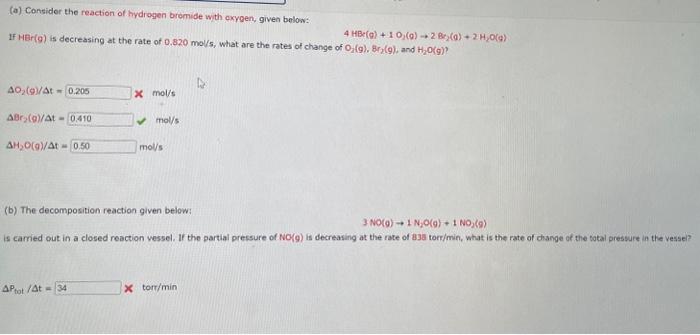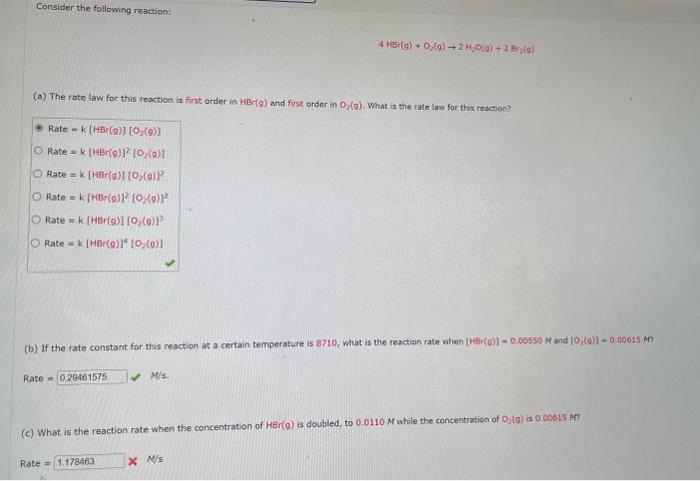Answered step by step
Verified Expert Solution
Question
1 Approved Answer
If HEr(g) is decreasing at the rate of 0.820 mol/s, what are the rates of change of O2(g),Br(g(g), and H2O(g) ? O2(g)/t=B2(g)/t=H2O(g)/t=Xmol/smol/s (b) The decomposition


Step by Step Solution
There are 3 Steps involved in it
Step: 1

Get Instant Access to Expert-Tailored Solutions
See step-by-step solutions with expert insights and AI powered tools for academic success
Step: 2

Step: 3

Ace Your Homework with AI
Get the answers you need in no time with our AI-driven, step-by-step assistance
Get Started


